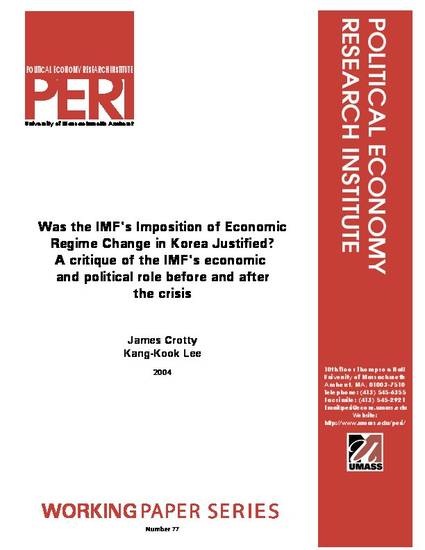
As late as October 1997 the IMF declared that the Korean economy was experiencing a temporary liquidity squeeze, not a solvency problem. Yet in December 1997 Deputy Managing Director Stanley Fischer declared that Korea suffered from a systemic “breakdown of economic relations” so complete that only radical economic restructuring could restore prosperity. The IMF attached what it called “extreme structural conditionality” to its loan agreements with Korea, demanding a complete and rapid transition from Korea’s traditional East Asian economic model to a globally integrated neoliberal model. We subject the IMF’s assertion that the allocative efficiency of the Korean economy had collapsed by 1997 to a number of empirical tests, including time series and cross-section analyses of capital productivity and corporate profitability, and firm and industry level econometric tests of the proposition that investment spending was excessive and misallocated in the pre-crisis period. This evidence does not support the IMF’s systemic breakdown claim. We conclude that the IMF’s imposition of “extreme structural conditionality” on Korea is best understood as an illegitimate and antidemocratic exercise of power designed to meet the needs of the IMF’s key constituents rather than those of the majority of Korea’s people.
Available at: http://works.bepress.com/james_crotty/5/
